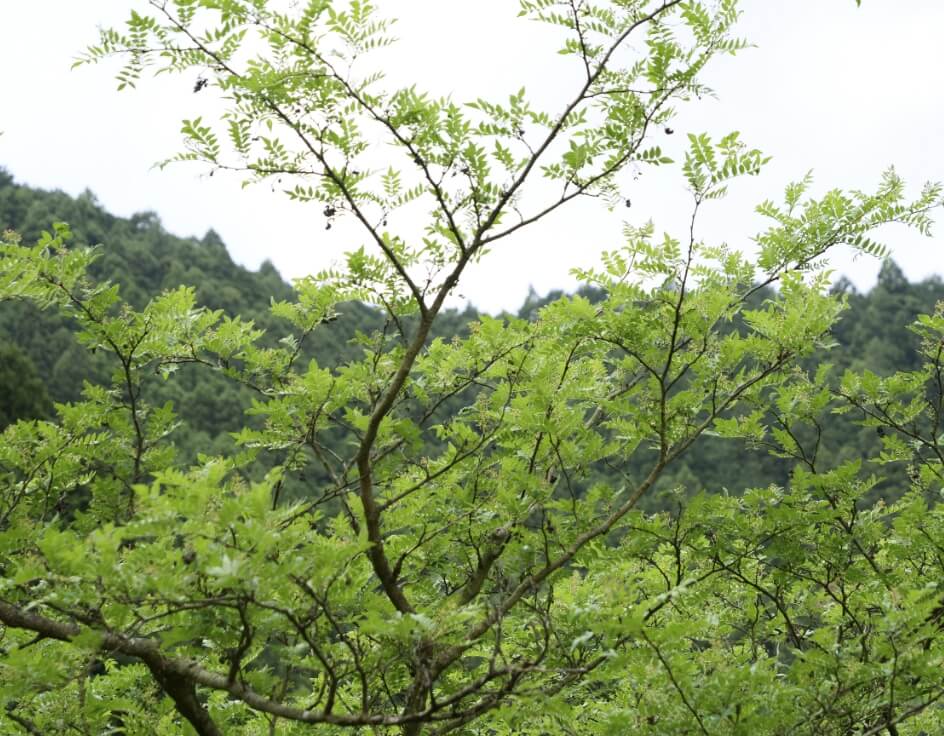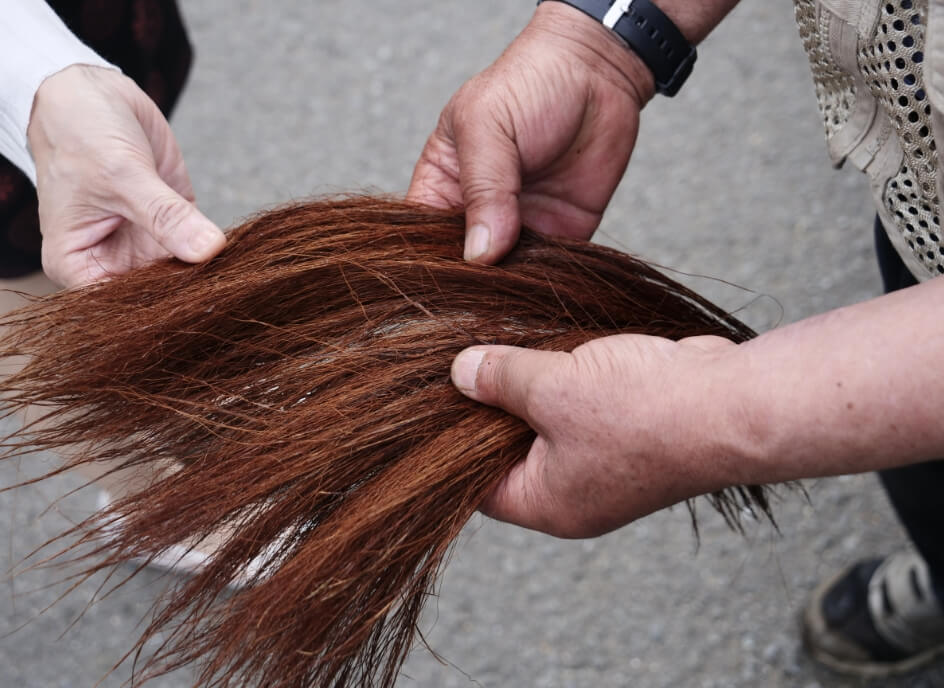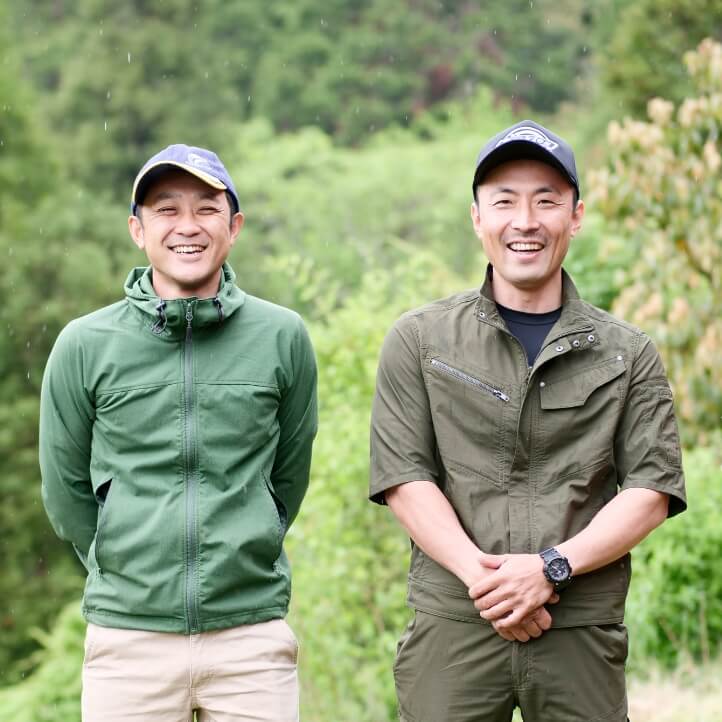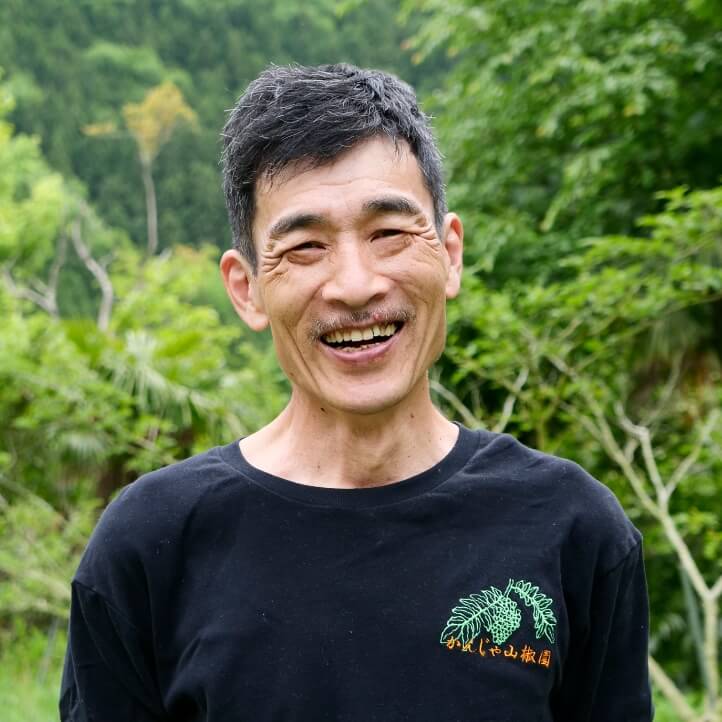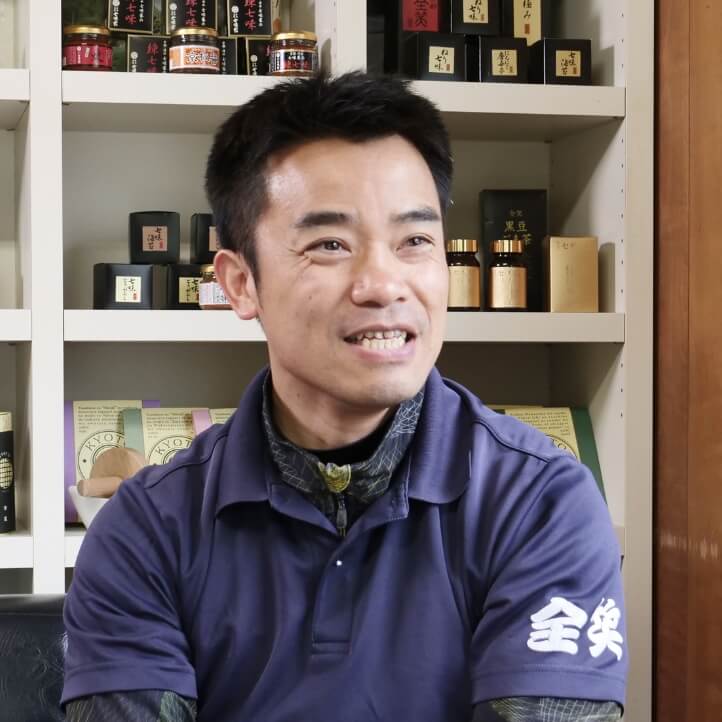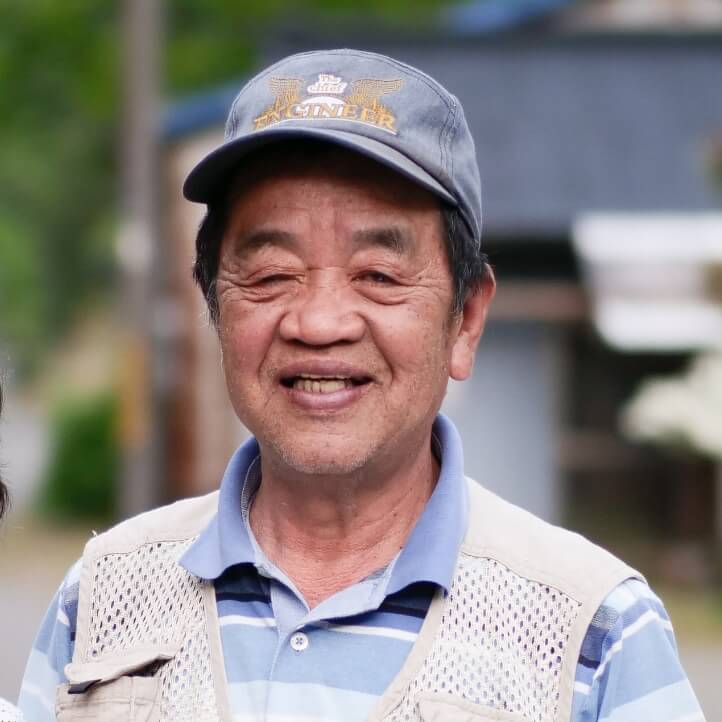Mountain trees each have a crucial part to play
Tadatsugu Nishiwaki, resident of Shimoyukawa, a village that lies near one of the tributaries of Arida River, and part of the former Shimizu Town, reflects back on his childhood days like this—“There are a variety of trees in the mountains, and around them, almost encircling them, windmill palm (trachycarpus) grew thickly. I felt a strong sense of the value of trees in my mind as a child, seeing how each of the trees were used, and the role that they played in our lives. But, from the high-growth period during the Showa era (from around the mid-1950s to the early 1970s) onward, the times changed to that of mass production and mass consumption. The trees that grew naturally in the forests were felled to make way for cedar, cypress, and other varieties of tree to be planted. Trees several hundred years old were chopped and left to wither, with no significant role. While this state of affairs was tough on him, Mr. Nishiwaki, interested in artworks and Buddhist statues carved from wood, set out to read books, meet with master craftsmen such as carpenters specializing in the construction of temples and shrines, and accumulated great knowledge about trees. There were no people in close proximity who seemed to think about the role of trees, and then carefully cultivate them for some particular purpose. His way of living from then on was decided with the thought, “I’ll just have to do it myself.”

Husband and wife, Tadatsugu and Eiko Nishiwaki

This is the path I have to take
Nishiwaki resolves to take on crafting products from windmill palm as his principal occupation, picking up the idea from seeing his father work with windmill palm as a side job. Even with the same species of tree, cultivation methods differ according to differences in the tree’s location and environment. The soft parts can be used for brushes to wash the body, stiff and strong parts for high-quality scrubbing brushes—by identifying each of the special characteristics, while leveraging the advantages of each to the fullest, ideas for product development were mapped out.
Nishiwaki says, “I discovered a field where I could blaze a path using my own way of thinking and techniques, and that is where I wanted to give it a go.” He goes on, “What is important is checking to see with your own eyes, thinking with your own mind, discovering ‘a path of your own.’ Because I felt that living is about making a discovery of your own and pursuing that path, not taking a path laid out for you by someone else.” And blushing slightly, admits, “Being able to pursue this way of living all these years, has largely been thanks to the cooperation of my wife, Eiko, whom I married at the age of 23. On top of the time and effort taken to create prototypes and get them through to the stage of being completed products, the work was done without ever being able to see the end, not knowing if it would be successful or not.” He continues, “I have given my wife a great deal of problems to contend with.” Standing beside him, Eiko breaks into a warm smile.


 People involved with budo sansho
People involved with budo sansho

